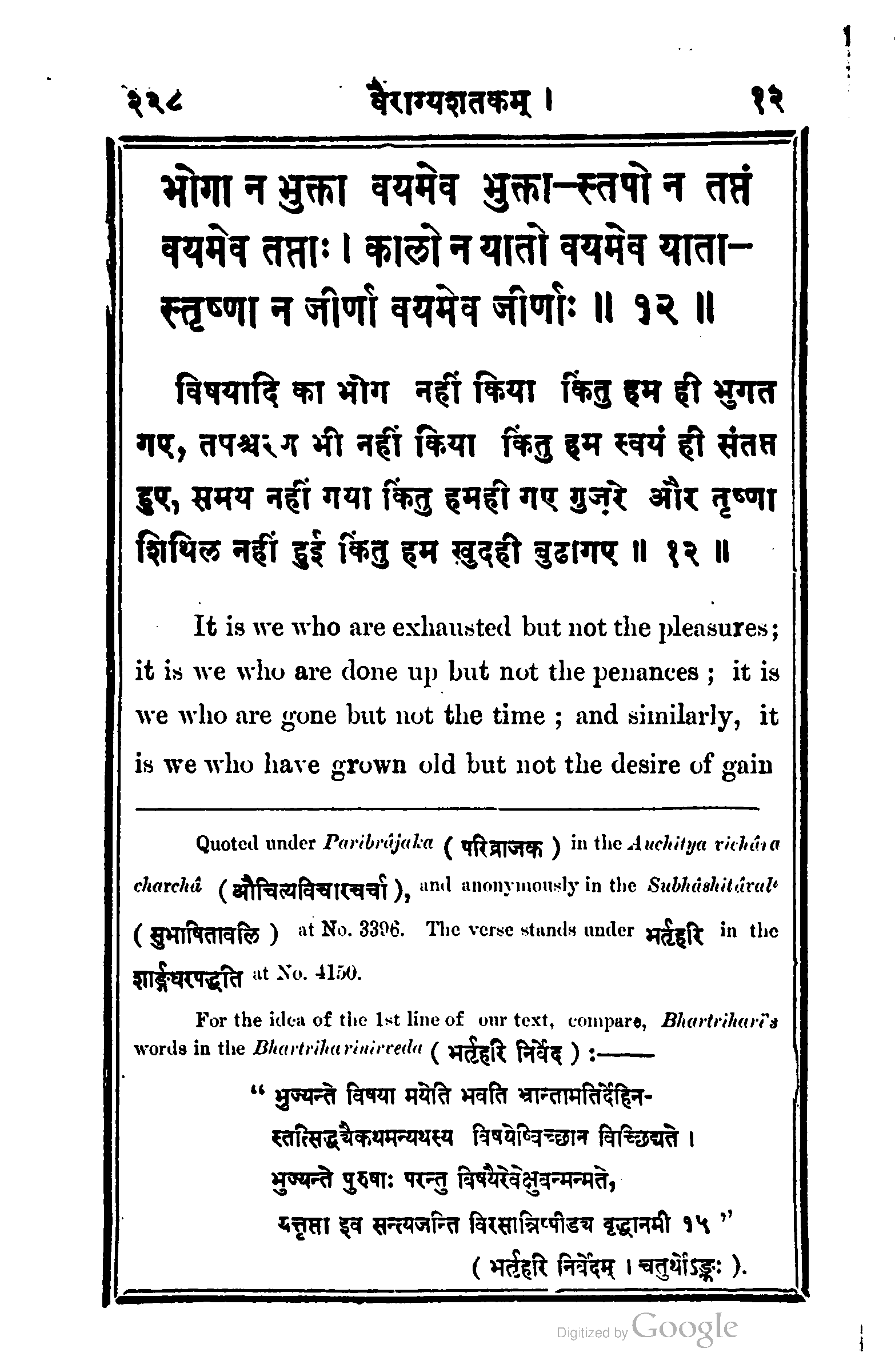Ryder
Tawney
More
Mādhavānanda
Telang
verse

Text (not proofread)
भोगा न भुक्ता वयमेव भुक्ता
स्तपो न तप्तं वयमेव तप्ताः ।
कालो न यातो वयमेव याता
स्तृष्णा न जीर्णा वयमेव जीर्णाः ॥ १२ ॥
footnote

Text (not proofread)
XII . ( @ ) ° क्तास्त ? ; ° क्तं त ° T. ( 2nd reading ) ( 6 ) ● सा : ; सम . T.
( 2nd reading ) ( c ) ० ताः ; तम् . T. ( 2nd reading ) ( 2 ) ० ° णी :; वर्णम् ..
( 2nd reading ) .
endnote

Text (not proofread)
St. XII . -भुक्ता : = preyed upon ( i . e . by the desire for the
enjoyments or : which we have not enjoyed ) . Râmarshi says
विष्टिकरणेन ( 2 ) पामरजनैः पराभूता : The other commentary agrees
with our interpretation याताः = गनसत्वा Rámarshi . The other com
mentator says यास्मन्काळे यस्कर्म कर्तुमुचितं तत्कर्मविहीनी यातो गतः ( sic ° होना
याता गता : ? ) It appears to mean as good as gone out of the world
comp . Gità I , 9. जोगी - comp . St. II . जीर्णा : = enfeebled by old
age . --Upajati .
External
Kosambi
verse

Text (not proofread)
भोगा न भुक्ता वयमेव भुक्तास् तपो न तप्तं वयमेव तप्ताः ।
कालो न यातो वयमेव यातास् तृष्णा न जीर्णा वयमेव जीर्णाः ॥ १५५ ॥
footnote

Text (not proofread)
155 Om . in BU . 114 / 7. B2 order dbac ; D , abde ; I , ucbd . www a ) X 1 भोगा न
भुंक्ता ; T2 . 3 भुक्ता न भोगा . X1 वयमेव भुंक्ता ; T3 वयमेव भोक्ता . ° ) A3 जातासू ; B2
जातस् ( for यातास् ) .
BIS . 4631 ( 2070 ) Bhartṛ . ed . Bohl . Hael . Galan . lith . ed . I and III . 3. 8 .
Subhash 117 ; Sp . 4150 ( Bh . ) ; SR.B. p . 374.209 ( Bh . ) ; SBH . 3396 ; Ksemendra's
Aucityavicāracarca ( KM.1 , p . 154 , Parivrājaka ) ; SSD 4. f . 6b ; SSV . 1109 ; JSV ,
304. 4 .

